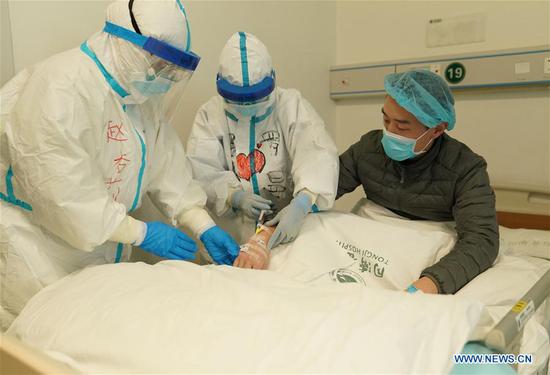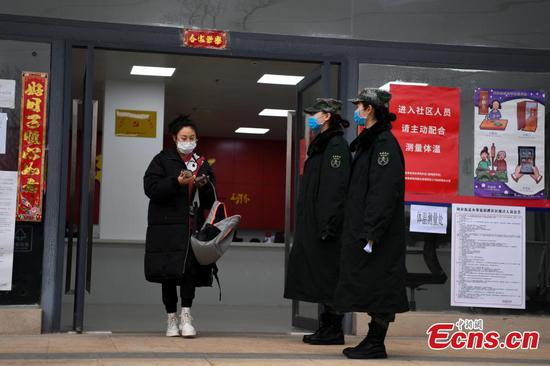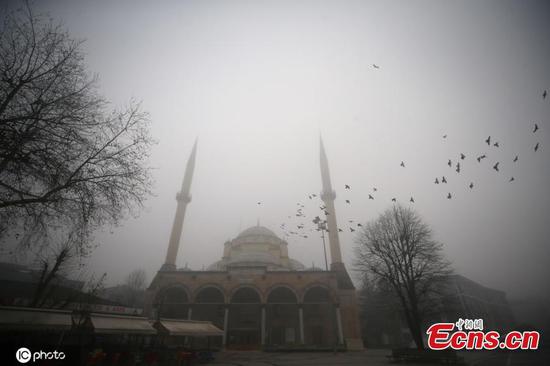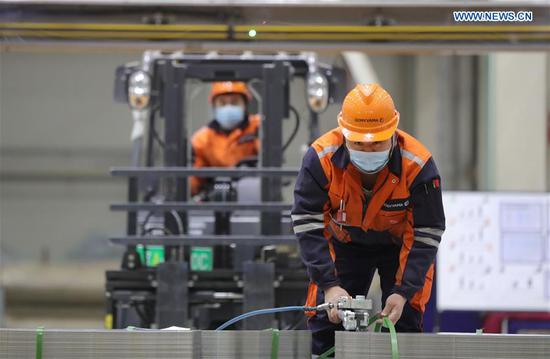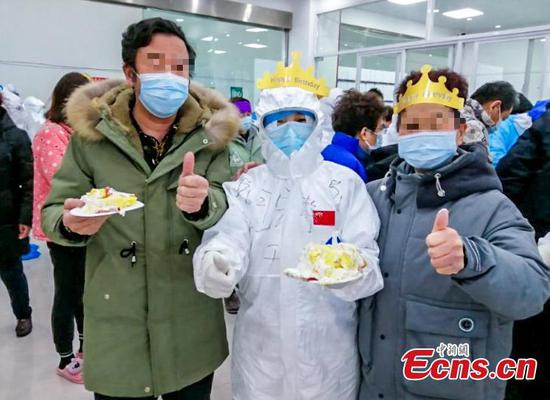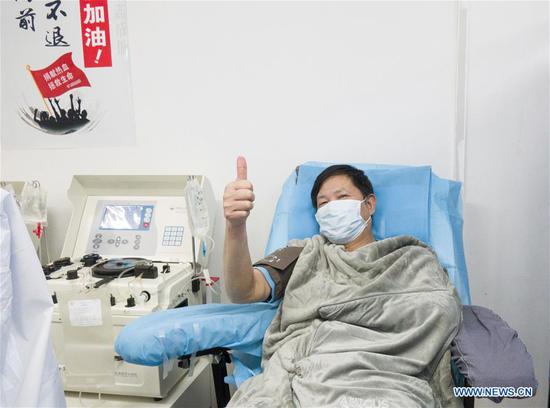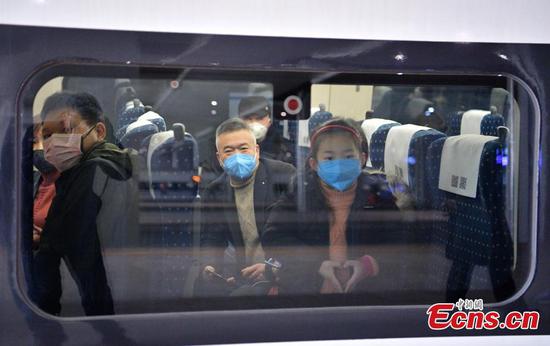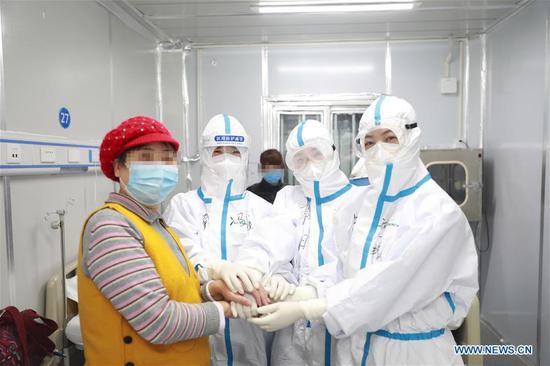
A psychological counselor in Haikou, Hainan province, answers a phone call about the novel coronavirus outbreak on Saturday. (Photo/Xinhua)
Zhang Hong has never experienced such huge demand for her services in her 23 years as a psychologist.
In the past 20 days, Zhang and her colleagues' workload has increased massively as they provided telephone counseling to more than 2,000 front-line medical workers in the epicenter of the novel coronavirus outbreak, Wuhan in Hubei province.
"Wuhan's medical staff are the focus of psychological crisis intervention work. Without intervention, some of them may suffer from long-term severe psychological disorders," said Zhang, deputy chief physician of Wuhan Mental Health Center.
"Disaster events can cause irresistible trauma and crisis to the mind and body," she said.
About 100,000 medical workers have been fighting the outbreak in the city since it was locked down on Jan 23.
And in this city of more than 40,000 infected patients and 11 million residents, these medical workers face the challenge of not only treating patients, but also coping with their own mental stress.
Zhang recalled that a middle-aged female medical worker recently called her for help, because her colleague was infected at work. She didn't have time to be afraid during their intensive work, but after work, she felt helpless, frightened and was unable to sleep.
A study by Tong Jun and Li Wentian of the mental health center found that three main factors contribute to medical workers' stress: overwork, the spread of the epidemic and public criticism.
As for infected patients, they cannot see their families and friends during isolation, which contributes to their fear and loneliness and may affect the effectiveness of their treatment.
The public is also prone to anxiety because of the long time they have had to stay at home and the resulting lack of interpersonal communication.
"All these negative emotions, coupled with the generally conservative character of Chinese people make the psychological problems even more serious," said Zhang.
The center's hotline had received nearly 2,000 calls from Jan 24 to Sunday afternoon, and the center has been open 24 hours a day since Feb 5.
Zhang Jiaxiu, an employee at the center, said it has also recruited more than 200 volunteers nationwide to provide psychological counseling services.
"The invisible psychological problem is overlooked by many people but is a crucial factor in the battle with the epidemic," said Zhang.
She said that in addition to the hotline service, the center provides video lectures on the internet.
Their purpose is to promote mental health knowledge, reduce fear and maintain social stability.
"Most people and medical workers can actually carry out psychological adjustment by themselves," said Zhang Hong.
"The key is to take good care of the body, arrange a reasonable schedule, ensure adequate sleep and diet, and get the necessary rest and relaxation."









